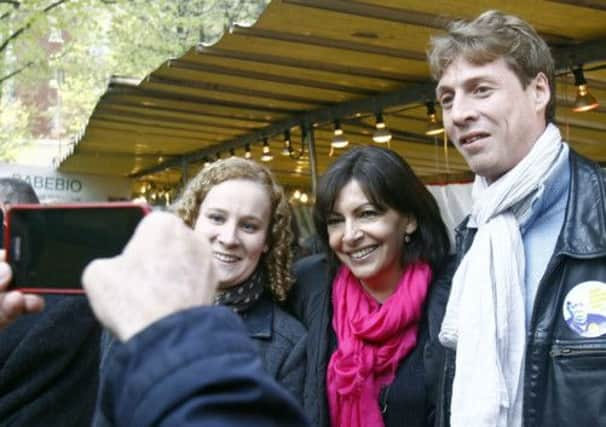Paris to elect first female mayor in 2,000 years


There are only two realistic prospects for the top job.
The conservatives hold their primary starting 31 May, but the outcome is all but decided. Nathalie Kosciusko-Morizet, or NKM as she is known, is seen as the only possible winner.
Her Socialist opponent in the March 2014 election will be Anne Hidalgo, current mayor Bernard Delanoe’s chosen heir.
Advertisement
Hide AdAdvertisement
Hide AdThe two women have already begun to spar, notably over security and tourism in Paris, where riots erupted this month during a celebration for football club Paris Saint-Germain. But they have distinct visions of how Paris should serve its 2.3 million residents and the 29 million annual visitors.
Ms Kosciusko-Morizet has called for shops to open on Sundays, saying that Paris is losing tour groups to London at weekends.
She also wants to crack down on the pickpockets who swarm the subways and attractions such as the Louvre and Eiffel Tower.
“We have something to learn about hospitality,” she said.
Ms Hidalgo says she doesn’t want Paris – which virtually shuts down on Sundays and in the evenings – to “look like Anglo-Saxon cities working 24 hours a day”.
Ms Kosciusko-Morizet, 40, is an engineer whose grandfather was once ambassador to the United States. Her father is mayor of a small town on the outskirts of Paris. She herself was mayor of the Paris suburb of Longjumeau until this year.
She also led the ministry of ecology, sustainable development, transport and housing under former president Nicolas Sarkozy and was the spokeswoman for his failed presidential re-election campaign last year and remains a deputy in the National Assembly.
In contrast, Ms Hidalgo, deputy to Mr Delanoe, who is retiring after 12 years in office, is more reticent in public. At a recent visit to a street market, she remained firmly surrounded by aides who handed out literature.
But Ms Hidalgo, 53, whose parents emigrated from Spain when she was two, could benefit from Mr Delanoe’s popularity and Paris’ system of indirect voting, in which the mayor assumes power upon the vote of leaders of individual neighbourhoods.
Advertisement
Hide AdAdvertisement
Hide AdJust five of the 40 French towns with populations greater than 100,000 have female mayors, testament to the glass ceiling in French politics.
In 2000, France passed a law requiring gender parity among candidates, but France still ranks low in global comparisons for women’s empowerment. The UN’s 2012 Global Gender Gap survey placed France at 63rd, between Ethiopia and Chile.
“I’m happy there are a lot of women in this Parisian battle – it’s proof Paris has evolved. At least, those criticisms we often hear about the competence of women won’t be an issue,” Ms Hidalgo said after one debate.
Ms Kosciusko-Morizet said: “It’s true there aren’t enough women in French politics. And I’m an engineer, there are also few engineers in French politics.”
In truth, the two share many positions: both back state-owned housing, call for limits on diesel vehicles and support gay marriage, which was recently legalised in France.